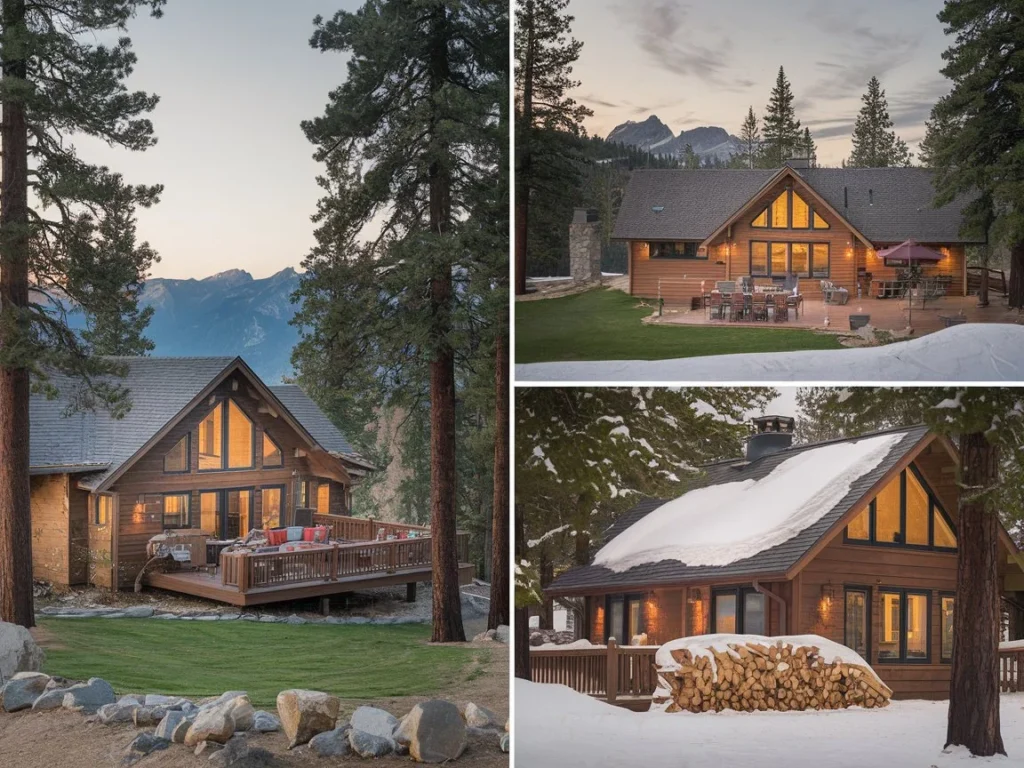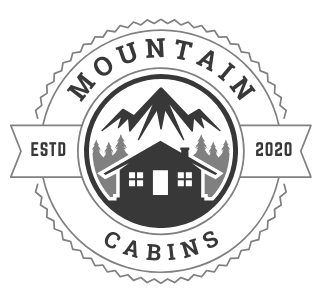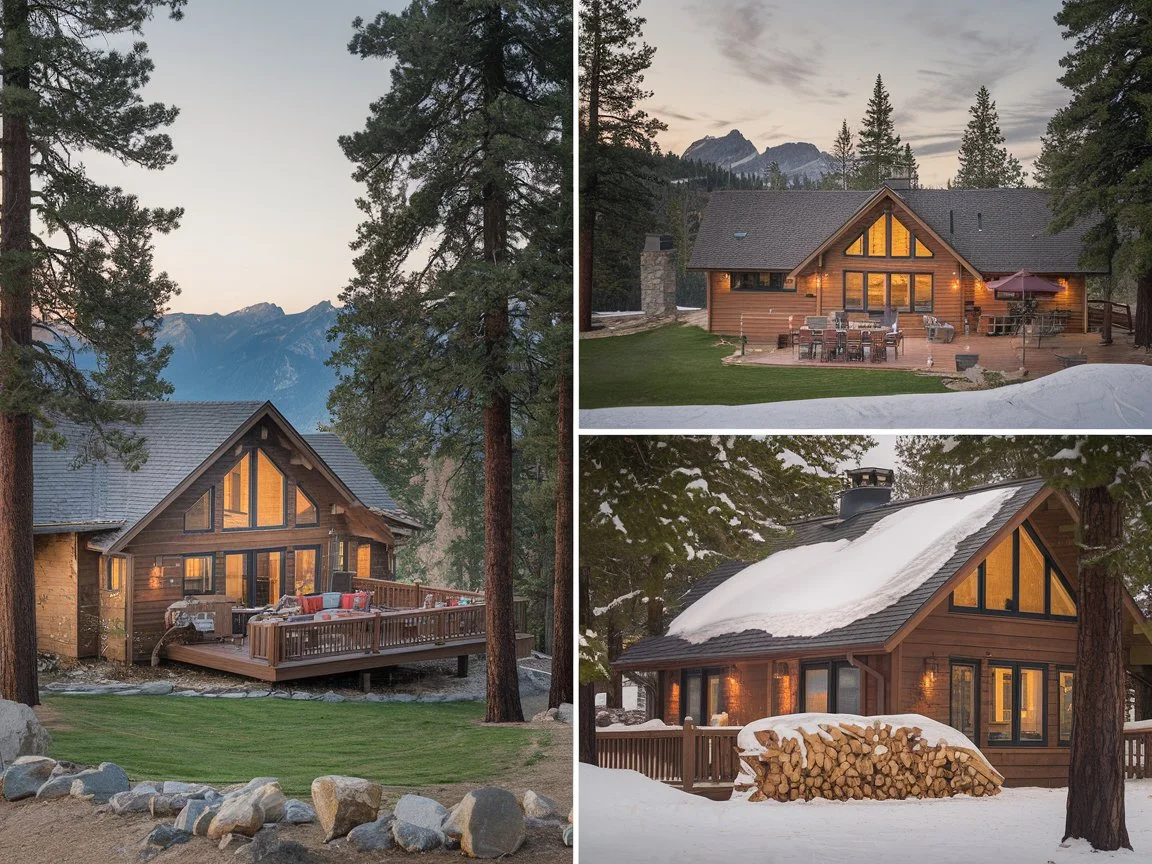
Introduction
Owning a mountain cabin as a vacation home can be a dream come true for nature lovers and adventure seekers. The idea of having your very own private retreat, nestled in the beauty of the mountains, offers an alluring sense of freedom and escape. Imagine stepping away from the hustle and bustle of daily life to enjoy the tranquility of a cabin, surrounded by breathtaking views and outdoor activities, year-round.
However, while the allure of a personal mountain getaway is undeniable, owning a cabin comes with both benefits and challenges. From the joy of having a home away from home to the potential financial burdens of ownership, there’s a lot to consider before making this type of investment.
This guide will explore the pros and cons of owning a mountain cabin as a vacation home, helping you make an informed decision. Whether you’re looking for a private sanctuary or an income-generating property, understanding both sides is key to ensuring your mountain retreat aligns with your needs and lifestyle.
1. Pros of Owning a Mountain Cabin
Owning a mountain cabin offers a wide range of advantages, particularly for those who seek both adventure and tranquility in a natural setting. Below are some of the most significant benefits of having your own mountain retreat.
A Private Retreat in Nature for Year-Round Getaways
One of the most appealing aspects of owning a mountain cabin is having your own private sanctuary to escape to at any time of the year. Whether it’s skiing in the winter, hiking in the summer, or simply enjoying the peaceful ambiance in the fall and spring, a mountain cabin provides the ultimate access to nature and outdoor activities. No need to worry about booking accommodations or competing with other tourists; your cabin is always there, waiting for you to unwind.
Potential Rental Income When Not in Use
Another major benefit of owning a mountain cabin is the potential for rental income. Platforms like Airbnb and Vrbo make it easy to rent out your property when you’re not using it. Whether you only visit a few times a year or want to share your retreat during the off-season, renting your cabin can help offset the costs of ownership. For many owners, this extra income makes cabin ownership much more affordable.
Long-Term Investment Value and Property Appreciation
Mountain properties can be excellent long-term investments. As the demand for vacation homes in scenic locations continues to grow, the value of your cabin may appreciate over time. Additionally, owning land in a desirable location could provide financial security in the future, especially if the area becomes more popular or experiences infrastructure improvements.
Control Over Your Vacation Experience (Decor, Maintenance)
Owning your own cabin gives you complete control over how it’s decorated, maintained, and organized. You can personalize every detail, from furniture to the landscape, to ensure that your cabin reflects your style and preferences. This autonomy allows for a more comfortable and tailored vacation experience, unlike renting, where you may have to adjust to someone else’s choices.
The Ability to Host Family and Friends
With your own mountain cabin, you have the opportunity to invite family and friends for unforgettable get-togethers. Whether it’s a cozy winter weekend or a summer barbecue, hosting becomes a breeze with a cabin that’s tailored to your needs. Your loved ones will also appreciate having a private getaway in a stunning setting, making it the perfect spot for creating lasting memories.
2. Cons of Owning a Mountain Cabin
While owning a mountain cabin offers many advantages, it’s essential to understand the challenges and responsibilities that come with it. Below are some of the most significant drawbacks that potential owners should consider before taking the plunge.
High Upfront Costs and Ongoing Maintenance Expenses
The initial cost of purchasing a mountain cabin can be significant, depending on the location, size, and amenities. Aside from the purchase price, you’ll need to budget for property taxes, insurance, and utilities. Additionally, cabins in remote locations may require more upkeep, including regular maintenance to keep them in good condition. From routine repairs to seasonal tasks like snow removal, the financial investment required for maintaining the cabin can add up quickly.
Seasonal Weather Challenges (Road Access, Heating, Insulation)
Mountain weather can be unpredictable and extreme, which may present several challenges for cabin owners. In winter, snow and ice can make roads impassable, limiting access to your cabin. This can be a problem if you’re not able to get there regularly for maintenance or if you need to evacuate in an emergency. Additionally, keeping the cabin warm during the winter months requires reliable heating systems and proper insulation, both of which may come with high energy costs.
Managing Remote Properties and Security Concerns
For those who own cabins in remote locations, managing the property can become a logistical challenge. You may be far from nearby services and tradespeople, which could delay necessary repairs or maintenance. Security is also a concern—cabin owners often have to rely on remote monitoring systems or ask neighbors to keep an eye on the property, especially if the cabin is left unattended for long periods.
Struggles with Keeping the Cabin Maintained While Not Being There
If you don’t live nearby, ensuring that the cabin is well-maintained can be difficult. Regular inspections, lawn care, and snow removal may require hiring local help, which adds to the cost of ownership. Additionally, issues such as frozen pipes or a leaking roof can go unnoticed until they become more serious, leading to costly repairs.
Potential for Low Rental Demand in Certain Areas
While renting out your cabin can be a great way to earn income, this is only viable if there is demand in the area. Some mountain regions may be more seasonal, with low demand during off-peak months or limited interest from vacationers. Without a strong rental market, it may be harder to generate the income you need to offset the costs of owning the cabin.
3. Managing Your Mountain Cabin as a Vacation Rental
Renting out your mountain cabin can be an effective way to offset the costs of ownership, but it requires careful planning and management. Here’s how you can turn your cabin into a successful vacation rental.
Platforms for Renting Your Cabin (Airbnb, Vrbo, etc.)
The most popular platforms for listing your cabin are Airbnb, Vrbo, and Booking.com, which allow you to reach a wide audience of vacationers looking for a unique getaway. These platforms offer easy-to-use tools for managing bookings, setting prices, and handling guest communication. Listing your cabin on multiple platforms can maximize your exposure, but it also means more work to keep track of reservations and ensure availability across all sites.
Marketing Your Property Effectively and Maintaining High Ratings
To stand out from other vacation rentals, you’ll need to market your cabin effectively. High-quality photos and a well-crafted description are key to attracting guests. Highlight the unique features of your cabin, such as scenic views, outdoor activities, and cozy amenities. Make sure to offer competitive pricing, especially during peak seasons.
Maintaining positive guest reviews is crucial for success. Always respond promptly to inquiries, ensure the cabin is clean and well-maintained, and provide a welcoming environment. Guests who have a great experience are more likely to leave glowing reviews, which will help boost your property’s reputation and attract more bookings.
The Importance of Having a Property Manager for Remote Locations
For cabins located in remote areas, managing the property remotely can be challenging. A property manager can handle tasks such as guest check-ins, cleaning, maintenance, and emergency repairs. They can also act as your local point of contact, ensuring that everything runs smoothly even if you’re not nearby. A good property manager can significantly reduce the stress of managing a rental property, particularly when you’re not living in the area.
4. Financial Considerations: Is It Worth the Investment?
Before committing to owning a mountain cabin as a vacation home, it’s important to weigh the financial aspects. From upfront costs to ongoing expenses, here’s a breakdown of the major financial considerations.
Cost Breakdown of Owning a Vacation Home (Mortgage, Taxes, Utilities)
Owning a mountain cabin involves more than just the purchase price. You’ll need to consider the following recurring expenses:
- Mortgage Payments – Depending on the size and location of the cabin, your mortgage could be substantial. Consider your ability to afford monthly payments alongside other financial obligations.
- Property Taxes – Property taxes can vary significantly based on location and value. Mountain cabins, especially in scenic or tourist-heavy areas, may come with higher tax rates.
- Utilities – Utilities such as heating (which can be costly in colder regions), water, electricity, and internet are ongoing expenses that need to be factored into your budget.
Estimating Rental Income Potential and Tax Implications
If you plan to rent out your cabin, it’s crucial to estimate potential rental income. This depends on factors such as location, cabin amenities, and demand. Research local rental rates on platforms like Airbnb or Vrbo to get an idea of how much you can earn. Keep in mind that rental income is subject to taxes, so consult a tax professional to understand your obligations. You may also be able to deduct certain costs (such as maintenance and property management) from your taxable income.
How to Budget for Seasonal Maintenance and Unexpected Repairs
Owning a cabin in the mountains means you’ll need to budget for seasonal maintenance. Winter weather can lead to issues like ice dams, snow removal, and heating system maintenance, while summer may require landscaping and pest control. It’s important to set aside funds for these seasonal tasks and unexpected repairs. A reserve fund for emergencies can prevent you from being caught off guard by costly issues that need immediate attention.
5. Alternatives to Owning: Renting a Mountain Cabin vs. Buying
For some, purchasing a mountain cabin may not be the right choice due to the high upfront costs, maintenance requirements, or the desire for flexibility. Renting a cabin can provide many of the same benefits without the long-term commitment. Here’s when renting may be a better option.
When Renting May Be a Better Option Than Purchasing
If you’re unsure about your long-term plans or the area you want to visit, renting a mountain cabin can give you the experience of a mountain retreat without the responsibility of ownership. Renting also allows you to explore different locations, which is ideal if you’re uncertain about which part of the mountains best fits your preferences for activities, scenery, and accessibility. Additionally, renting avoids the financial burdens that come with purchasing a cabin, including mortgage payments, property taxes, and maintenance costs.
Benefits of Renting First Before Buying a Cabin
If you’re considering buying a mountain cabin but aren’t sure whether you’ll love the location or lifestyle, renting first is a smart move. A rental experience will allow you to test out the area, assess the amenities, and determine if the cabin style suits your needs. This can help you make a more informed decision when it comes time to buy, ensuring you don’t rush into a purchase that may not meet your expectations.
How to Choose Between Long-Term Rentals and Short-Term Stays
When it comes to renting, you have the option of long-term leases or short-term stays. If you plan to visit the mountains frequently but don’t want the commitment of ownership, long-term rentals provide a stable and cost-effective option. However, if you prefer flexibility and want to visit different locations, short-term rentals may be more suitable. Short-term stays also allow you to enjoy a variety of experiences without being tied to one property.
Conclusion
Owning a mountain cabin as a vacation home comes with a mix of exciting advantages and potential challenges. The ability to escape to your own private retreat, earn rental income, and enjoy a personalized vacation experience are among the key benefits. However, the high upfront costs, seasonal weather issues, and the responsibility of property maintenance can make cabin ownership demanding.
Before making the commitment, it’s important to consider your long-term goals, budget, and the time you can dedicate to managing the property. If ownership feels too overwhelming, renting a cabin can provide a similar experience without the ongoing responsibilities. Whether you decide to buy or rent, a mountain cabin offers a unique opportunity to connect with nature, create lasting memories, and enjoy peaceful getaways.
Weighing the pros and cons carefully will help you make the best decision for your lifestyle and financial situation. Make sure to do thorough research, and remember that a mountain retreat—whether owned or rented—can be a fulfilling and memorable escape.
U.S. News & World Report – Should You Buy a Vacation Home?
This article discusses key factors to consider when purchasing a vacation home, including financial and lifestyle considerations, which complements the content of your article.

